This game only needed some sensor repairs (a few transistors and capacitors were torn off on the coin detection boards), so I figured I’d use this post to go over the standard features of a typical ticket redemption game as well as the repair, just to keep things interesting.
This game, Jackpot Crossing by American Alpha, is a basic coin roller ticket redemption game. The objective is to roll tokens across the ramp through the tunnel at the end. If 7 tokens make it through, the player spells the word “JACKPOT” and wins the accumulated jackpot. Pretty basic stuff, and if a coin misses, it falls into a valley which awards 1-2 tickets depending on where the valley is on the board. It seems to have a twin called Mission Control, which is exactly the same besides the artwork and sound ROMs.
Although the cabinet seems somewhat cheaply made, most of the electronics inside are quality parts. The ticket dispenser is made in the US by Deltronic Labs (widely considered to be one of the best ticket dispenser manufacturers), and the power supply by Suzo-Happ (again, quality), however, the coin acceptor looks like a cheap off-brand Chinese model. Nonetheless, the machine was built in the early 2000s, and has held up this long, so I shouldn’t be complaining.
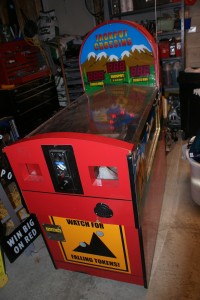
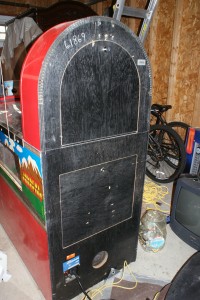
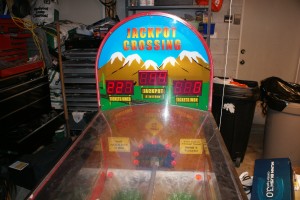
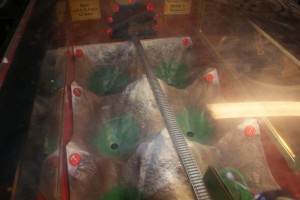
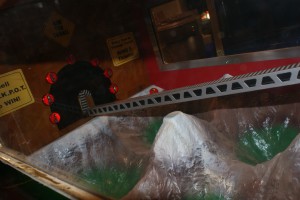
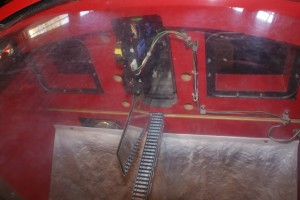
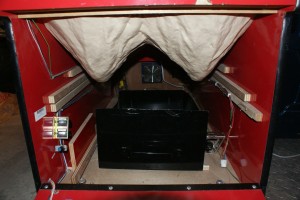
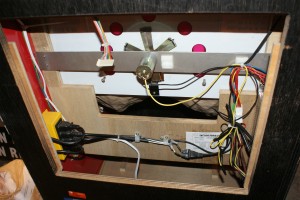
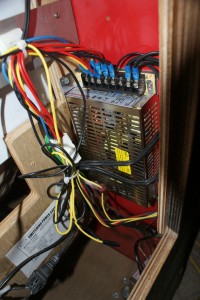
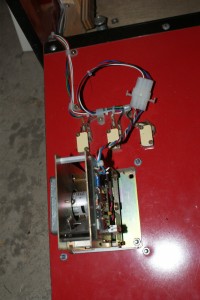
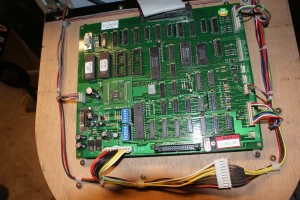
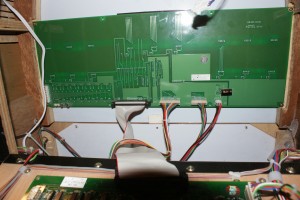
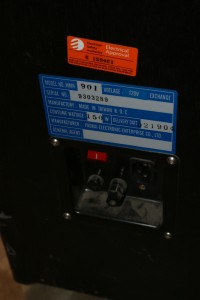
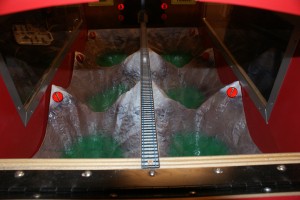
So, now that you know what’s inside one of these, I’ll go over the repair. Simply put, someone wasn’t very careful when they were maintaining the machine. While removing the detection boards, they must have caught it on something, which tore off several parts. Luckily, I had spares of all the parts that were damaged, so replacing them wasn’t a problem.
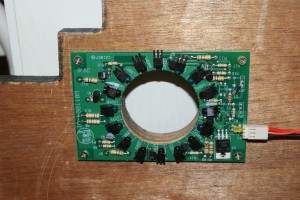
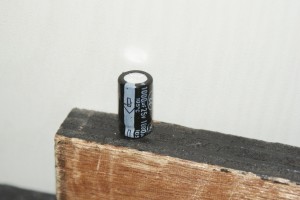
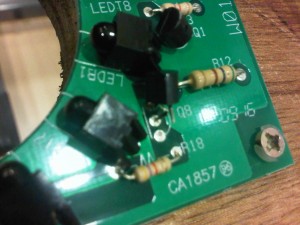
When purchased, this game was listed as working, but later found to be broken when I tested it after getting it home; which should serve as a warning to you – Always go to the previews and test the games you’re interested in before bidding on them at an arcade auction. As a bonus, however, I did find half a stack of tickets and around 100 or so tokens lying around inside the cabinet amongst the dust and torn off parts. These’ll come in handy when testing games and parts in the future.
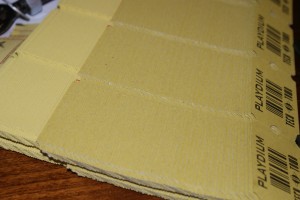
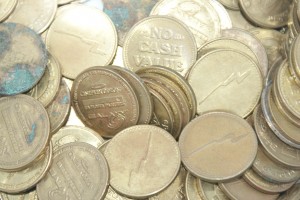
Hi Justin,
Very cool to see this online…..I designed jackpot Crossing. your review was VERY fair and I wanted to say I appreciated it. Jackpot Crossing was created at a time when the industry was dying…..there was very little new product on the market and most were revamps of older models that were amazingly, much more expensive than the originals. So, AAI decided to come up with in inexpensive, addicting token-roll down. Jackpot Crossing was what me built. The first 50 units were built completely in the US by our own hands for testing and modification purposes. Subsequent runs were produced in Taiwan to keep the price low…..it looks like you got one of the Taiwan units, hence the wiring and cabinet. Both were our a concern of ours but ultimately, seemed to be “good enough.”
Thanks for the nostalgic look back.
Hi Bryan,
Thanks for the comment! It’s great to hear from someone with behind-the-scenes experience in building these machines.